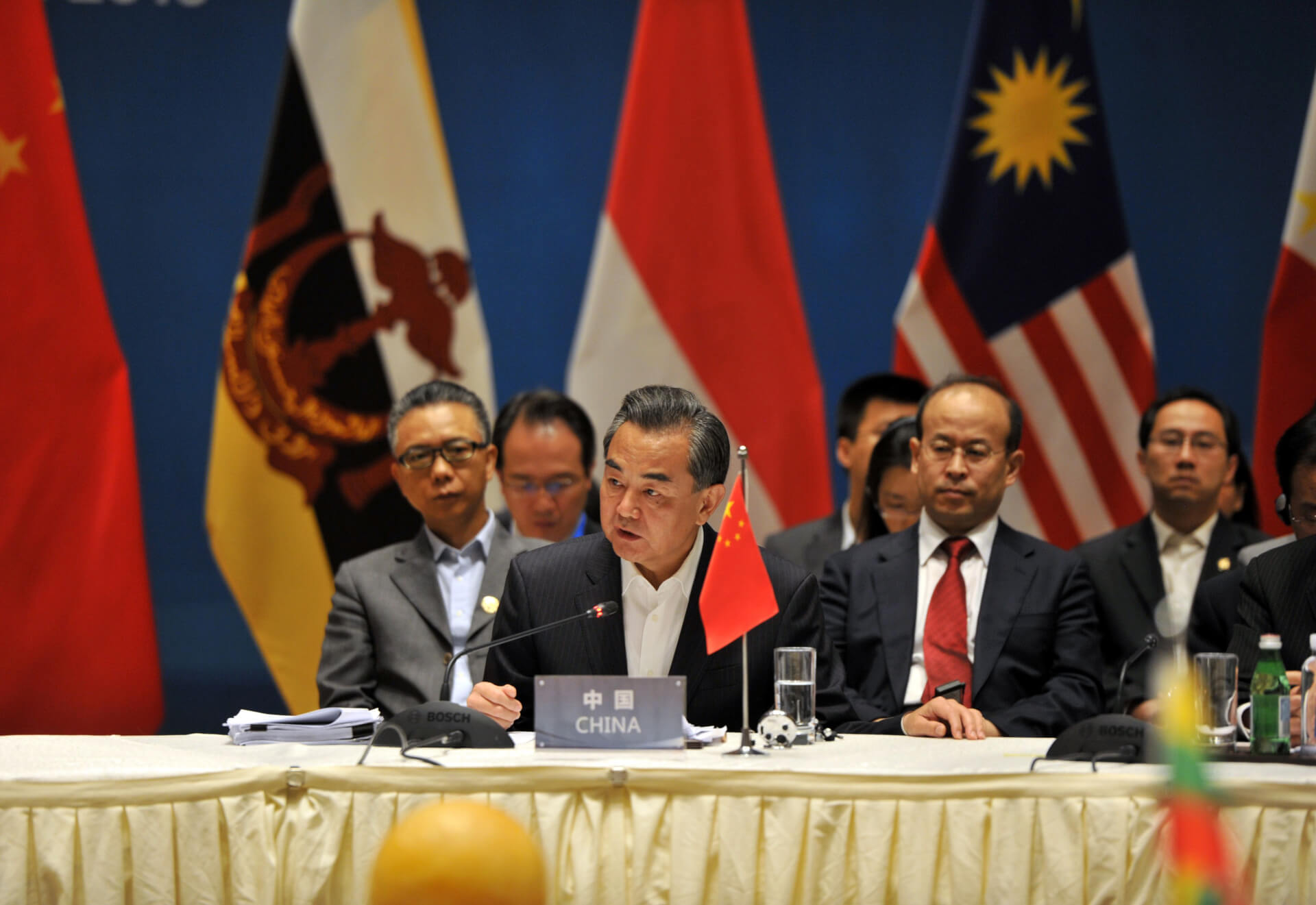The foreign ministers (FMs) of member countries of the Association of Southeast Asian Nations (ASEAN) and China held the Special ASEAN-China Foreign Ministers’ Meeting yesterday in southwest China’s Chongqing municipality. The meeting marked their first in-person meet in more than a year. It was co-chaired by Chinese State Councilor and Foreign Minister Wang Yi and Philippine Foreign Secretary Teodoro Locsin; Philippines currently serves as the country coordinator for ASEAN-China relations. ASEAN Secretary-General Dato Lim Jock Hoi of Indonesia was also in attendance at the meeting celebrating the 30th Anniversary of Dialogue Relations. Myanmar’s military-appointed foreign minister, Wunna Maung Lwin, was also present at Monday’s meeting.
The ministers discussed various regional and international events including Myanmar’s political crisis, developments in the contentious South China Sea (SCS), and the ongoing COVID-19 pandemic.
On the topic of the SCS, Wang noted that the Code of Conduct in the maritime body should be reached at an early date. He assured that China is ready to “strengthen dialogue and consultation with parties concerned” in the SCS and to “properly manage differences and enhance mutual trust.” Later in the day, China’s foreign ministry released a lengthy statement asserting: “We must jointly maintain stability in the South China Sea and avoid unilateral actions that may intensify conflicts.”
On the issue of Myanmar’s path to democracy and peace, the ministers from Singapore, Indonesia, and Malaysia expressed disappointment about the slow progress being made, arguing that Myanmar had failed to adhere to the “five-point consensus” agreed by ASEAN leaders at the special summit in April, which was also attended by junta leader Min Aung Hlaing. “To be honest with you, we are disappointed at the slow—very, very slow progress. Unfortunately, we know that there are still civilians who have been hurt or killed. There has been no release of political detainees, there has been no real sign of meaningful political dialogue and negotiation. So we’ll have to watch this space,” Singaporean FM Dr Vivian Balakrishnan said.
The ministers also talked of reopening their national borders even as Covid-19 infections continue to surge in several Southeast Asian nations. Indonesian FM Retno Marsudi called for more vaccine cooperation with China, while China assured that it would continue to aid the bloc in its fight against the COVID-19 pandemic. “In the process of jointly overcoming challenges, we have deepened friendship, mutual trust and common interests,” Wang told the ministers. He also assured that China would “urgently implement” the China-ASEAN Public Health Cooperation Initiative, continue to support the ASEAN Emergency Medical Materials Reserve and work towards improving regional public health capacity-building.
During the meeting, Wang Yi also reviewed the success of China’s past cooperation with ASEAN, which is a grouping of the ten Southeast Asian countries of Brunei, Cambodia, Indonesia, Laos, Malaysia, Myanmar, the Philippines, Singapore, Thailand, and Vietnam. “In the past 30 years, through joint efforts, we have become the largest trading partner, the most connotative partner, and the most dynamic strategic partner,” Wang Yi said. He summed up their relationship as “always putting each other in the first place in foreign relations, focusing on practical cooperation, adhering to the spirit of partnership, remaining open to each other and properly handling differences.”
This year marks the 30th anniversary of the establishment of dialogue relations between China and ASEAN. Over the past three decades, relations between both sides have greatly improved, including economic and trade ties. “Our trade volume has jumped from less than 8 billion US dollars to 684.6 billion US dollars, an increase of more than 80 times,” Wang Yi mentioned. The FMs concluded the meeting by agreeing to elevate cooperation in areas such as fighting the pandemic, economic recovery, connectivity, disaster relief and prevention, as well as sustainable development.
ASEAN and China Meet to Discuss Myanmar and South China Sea
On Monday, ASEAN leaders met with China to discuss the progress on Myanmar’s peace process, developments in the contentious South China Sea, and COVID-19.
June 8, 2021

SOURCE: AFP
